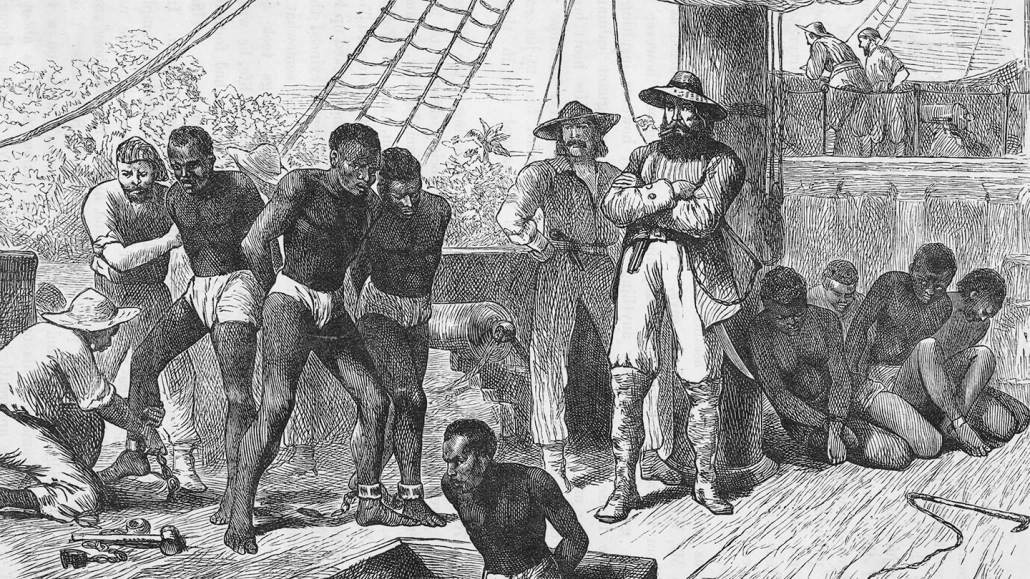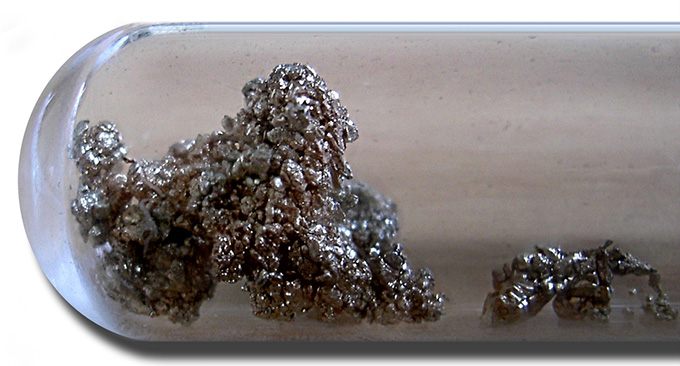A new map of Africa sheds light on the origins of enslaved people
Plotting the element strontium across the continent is helping pinpoint slaves’ birthplaces

From the 15th to the 19th centuries, more than 12 million Africans were enslaved and sent to the Americas and Europe. Comparing human remains against a map of strontium across sub-Saharan Africa now allows researchers to pinpoint the birthplaces of some of these people.
Joseph Swain/Wikimedia Commons
Share this:
- Share via email (Opens in new window) Email
- Click to share on Facebook (Opens in new window) Facebook
- Click to share on X (Opens in new window) X
- Click to share on Pinterest (Opens in new window) Pinterest
- Click to share on Reddit (Opens in new window) Reddit
- Share to Google Classroom (Opens in new window) Google Classroom
- Click to print (Opens in new window) Print
A little-known element is shedding light on the birthplaces of enslaved Africans sent to other continents.
From the 1400s to the 1800s, more than 12 million Africans were sold into slavery and sent to the Americas and Europe. Many left Africa through large coastal cities. But where those people grew up was often lost to history.
A new map could help pinpoint where enslaved Africans had been born and raised. It shows levels of the element strontium across much of the continent. Scientists compared those data with strontium levels in human remains from two cemeteries in the Americas. This helped narrow down where the enslaved people had come from.
Researchers shared their findings last December 30 in Nature Communications.
Making the map
Strontium is a metal naturally found in rocks and soil. There are different varieties of the element, known as isotopes. The relative amount — or ratio — of different isotopes varies from place to place. It depends on the rocks and soils in each region.
This metal is found in plants and animals, including people. Living things pick up the metal from their diet. “It’s in everything and everyone,” explains Vicky Oelze. Her field of study is biological anthropology. She works at the University of California, Santa Cruz.

The ratio of strontium isotopes in plant or animal remains can hint at where they had come from. “Each organism keeps the signature” of its surroundings, says Lassané Toubga. He’s an archaeologist in Africa at University Joseph Ki-Zerbo. That’s in Ouagadougou, Burkina Faso.
Oelze and Toubga were part of a team that gathered nearly 900 samples of soil, plants and animals across Africa. The work took more than a decade. The team combined those data with other published findings to construct a map of strontium isotope ratios across 24 African countries.
Historical insights
This map covers sub-Saharan Africa. Its creators focused on that region because it’s key for research in many fields. Archaeology is one example. Wildlife conservation is another.
But the scientists thought their map might also uncover details about the history of the African slave trade. Most people sold into slavery in the Americas and Europe had come from this part of Africa.
To test that idea, the team looked at the remains of 10 enslaved people. Some of those people had been buried in Charleston, S.C. Others were buried in Rio de Janeiro, Brazil. The scientists measured strontium isotopes in their teeth. Then, they compared those data to their map.
The analysis gave insights into the enslaved people beyond what had been known based on their DNA.
Consider new details about two men: Daba and Ganda. Both had been buried in Charleston. They were generally known to have West African ancestry. But the strontium data narrowed down their origins. They may have come from southwestern Ivory Coast. Or they might have hailed from southern Ghana or eastern Guinea.
Where a person comes from is a key part of their identity, Toubga says. It can offer clues to their culture or to the political groups to which they had belonged.
Murilo Bastos was not involved in the new work. But he’s an expert in bioarchaeology. He works at the National Museum of Brazil in Rio de Janeiro. Collecting more samples could make the map more detailed, he says. But already, he says, this work is impressive. “It’s a big achievement.”






